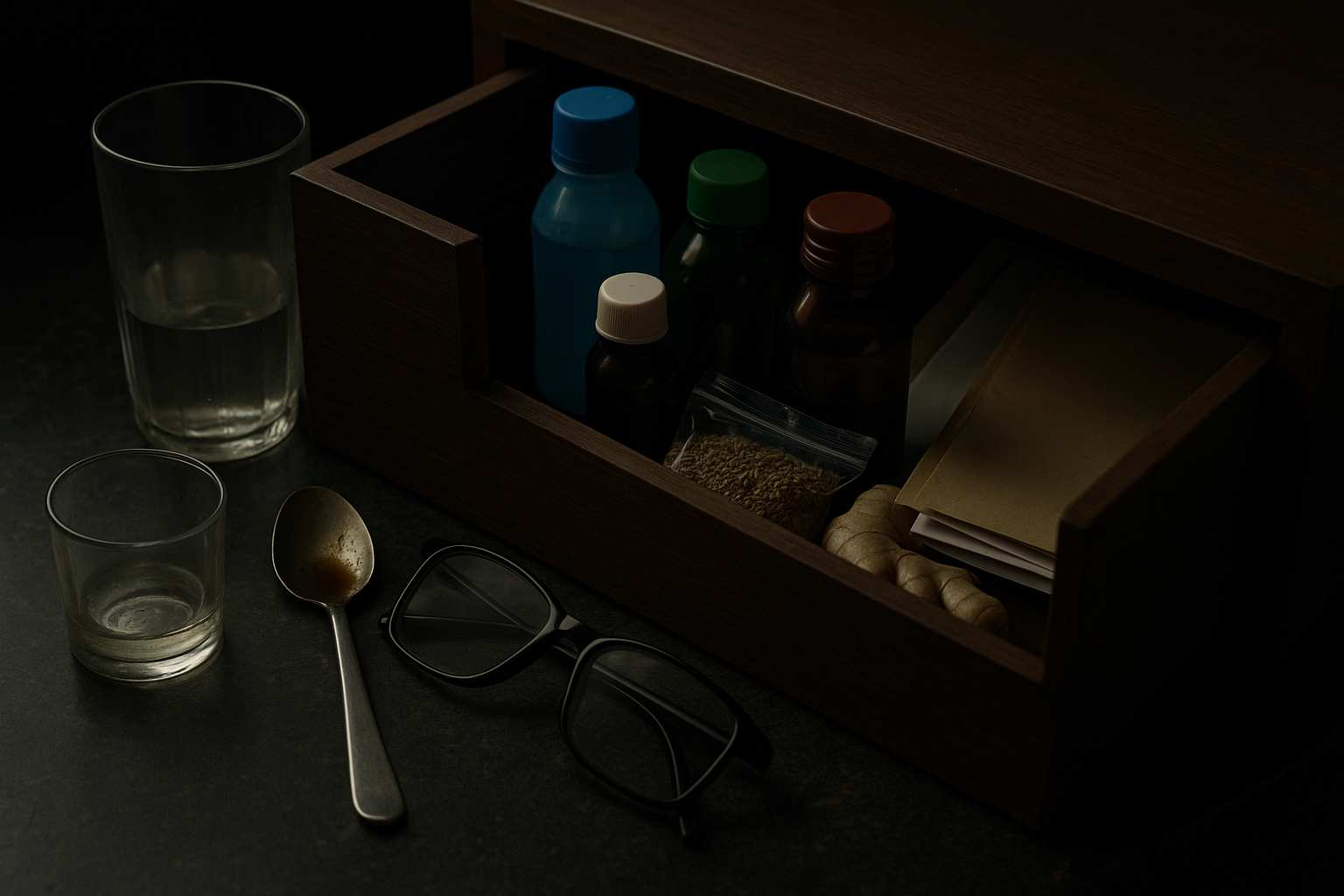Struggling with acid reflux at night or heartburn while sleeping can make it hard to get the rest your body needs. The burning sensation in your chest or throat can keep you tossing and turning. If you’re someone who constantly battles nighttime acid reflux or wakes up feeling uncomfortable, you’re not alone. Let’s explore what causes this and how to sleep better even with these issues.
What Is Acid Reflux?
Acid reflux occurs when stomach acid flows back into your food pipe or esophagus. This backflow can cause a burning feeling, commonly called heartburn. While acid reflux can happen at any time of day, it often gets worse at night. That’s because lying down makes it easier for acid to move up from your stomach to your throat.
Why Does It Happen at Night?
Your body digests food more slowly when you sleep. Also, gravity isn’t working in your favor when you’re lying down. This makes nighttime reflux more likely. It may also make your symptoms feel more intense compared to the daytime.
Why Heartburn While Sleeping Feels Worse?
If you’ve ever woken up in the middle of the night with a painful burn in your chest or sour taste in your mouth, it’s likely heartburn. During sleep, your body isn’t upright, so stomach acid can flow more easily into the esophagus. Plus, less saliva is produced when you’re sleeping, and saliva helps neutralize acid. This means that acid stays in the esophagus longer, making the symptoms worse.
How to Reduce Acid Reflux at Night: Simple Tips?
Here are some simple Morning and Night routines for Acidity Relief and to improve your sleep:
- Sleep on Your Left Side: Sleeping on the left side of your body helps reduce acid reflux and heartburn while sleeping. It keeps the connection between your stomach and esophagus above the level of stomach acid.
- Raise the Head of Your Bed: Elevating your head by about 6-8 inches can help gravity keep acid down.
- Avoid Eating Before Bed: Don’t eat anything for at least 2-3 hours before going to bed. This gives your stomach time to empty.
- Avoid Trigger Foods: Some common trigger food items cause heartburn and Acid Reflux at night. It includes spicy foods, tomatoes, chocolate, caffeine, alcohol, and citrus fruits. Keep a food diary to figure out your personal triggers.
- Eat Smaller Meals: Large meals put pressure on your stomach, which can push acid into the esophagus. Eat smaller portions more often.
- Lose Extra Weight: Extra weight, especially around the abdomen, can put pressure on your stomach.
- Don’t Lie Down Immediately After Meals: Wait at least two to three hours before lying down after eating.
- Avoid Tight Clothing: Tight waistbands or belts can put pressure on your stomach and worsen symptoms.
Create a Bedtime Routine That Supports Digestion
Going to bed right after scrolling through your phone or watching TV may not help your digestion. Try creating a bedtime routine that calms your body and promotes digestive health. This can include:
- Light stretching or yoga poses that aid digestion.
- Deep breathing or meditation to lower stress, which can trigger reflux.
- Drinking a calming herbal tea like chamomile (avoid mint if it triggers you).
- Your bedroom should be cool, dark, and quiet. This promotes sound sleep.
Track Your Symptoms with a Sleep and Food Journal
One of the most effective ways to understand your acid reflux triggers is by maintaining a journal. Write down what you eat, when you eat, your sleep habits, and when symptoms occur. Over time, you’ll notice patterns that can help you avoid specific foods or behaviors. This personalized insight is important. It plays a huge role in managing nighttime reflux successfully.
Best Tips to Improve Sleep Despite Acid Reflux
Besides food items and your body position, explore other factors to help:
- Use a wedge pillow to elevate your upper body.
- Avoid carbonated drinks at night.
- Chew gum after dinner to increase saliva.
- Try drinking some warm water or herbal tea before bed.
Medication and Treatment Options
If lifestyle changes aren’t enough, you might consider over-the-counter treatments. Antacids neutralize acid and provide quick relief. Other options include:
- H2 blockers: These H2 blockers help reduce the amount of acid produced by your stomach.
- Proton pump inhibitors (PPIs): These are stronger and used for long-term relief.
- Alginates: It prevents heartburn while sleeping by creating a foam barrier on top of the stomach.
Is Stress Making Your Reflux Worse?
Believe it or not, stress can play a big role in how severe your acid reflux becomes. When you’re stressed, your body produces more stomach acid, and your digestion slows down. This combination can worsen symptoms. Practicing stress-reducing techniques such as deep breathing, journaling, spending time outdoors, or engaging in hobbies you enjoy can improve both your mental health and your digestion.
Hydration and Reflux: What’s the Link?
Whether it’s your skin or your digestion, keeping yourself properly hydrated is important. Water helps dilute stomach acid and supports smoother digestion. However, avoid drinking large amounts of water during meals or before lying down. Instead, drink small amounts throughout the day to help manage your symptoms.
Try Best Antacid to Reduce Acid Reflux at Night
For many people, relief is found in using trusted products like Gaviscon Antacid. It forms a protective barrier on top of the stomach contents. As a result, this helps reduce acid reflux symptoms quickly. Moreover, you can consult your doctor for more details. It’s especially useful at night when symptoms are more likely to strike. However, if the problem persists, visit a doctor and take the needed precautions.
Why Are Antacids the Best for Heartburn While Sleeping?
- They offer fast relief by neutralizing stomach acid almost instantly.
- Antacids can be taken as needed, making them convenient for occasional flare-ups.
- Products like Gaviscon form a protective layer that prevents acid from rising back up the esophagus.
- Antacids are easily available over any medical counter. Also, Gaviscon is safe when used as directed.
- They are a non-invasive, drug-free option before trying stronger medications like PPIs.
When Should You See a Doctor for Acid Reflux?
If you’re experiencing acid reflux more than twice a week at night, it may be time to consult a healthcare professional. Here’s why:
- Occasional heartburn can happen to anyone. But if it’s disrupting your sleep multiple times a week, it could signal an underlying issue.
- Chronic acid reflux may indicate GERD (Gastroesophageal Reflux Disease). It is a more serious and long-term digestive disorder.
- Repeated exposure to stomach acid can irritate and inflame the lining of your esophagus. This can be Esophageal damage causing: Esophagitis, Esophageal ulcers, etc.
- Without treatment, GERD symptoms can become more intense, last longer, and be harder to manage with lifestyle changes alone.
Hence, this may prevent long-term complications.
Conclusion
Getting quality sleep when dealing with acid reflux or heartburn while sleeping is definitely possible. With the right habits and treatment, you can ease your symptoms and rest comfortably. Try the above tips and don’t hesitate to talk to your doctor if symptoms persist. A few small changes in your evening routine can make a big difference in your sleep and overall health.
Disclaimer: This content is just for general information and advice. It’s not meant to replace a doctor’s opinion. Always talk to a medical expert or your own doctor for proper guidance. AcidRefluxindia is not responsible for how you use this information.










